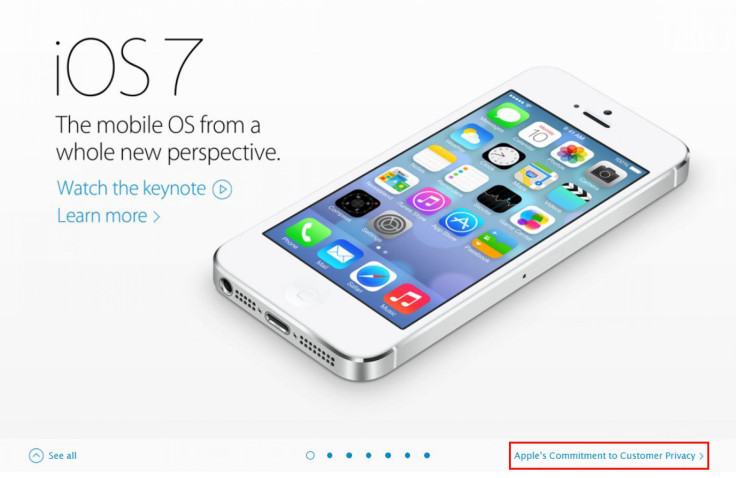Apple Received Up To 5K Customer Data Requests From US Authorities, Reiterates Ignorance Of PRISM

Apple (NASDAQ:AAPL) received thousands of requests from the U.S. law enforcement authorities asking for customer data relating to national security matters, the company said in an official statement, stressing on its “commitment to customer privacy.”
The Washington Post reported earlier this month that Apple -- along with other major U.S. Internet companies like Microsoft, Yahoo, Google, Facebook, PalTalk, AOL, Skype and YouTube -- participated in a formerly secret government surveillance program, code named “PRISM.”
The report stated that the National Security Agency and the FBI could directly access the central servers of the nine participating companies and extracted audio and video chats, photographs, emails, documents and connection logs, enabling analysts to track a person’s movements and contacts over time.
Following the report, Apple denied the claims saying: “We do not provide any government agency with direct access to our servers.”
Apple issued another statement on the issue on Monday, reiterating that it first heard about PRISM when the press asked about it on June 6, 2013. The company said that it asked the U.S. government for permission to reveal how many requests it had received related to national security and that it had been allowed to share some of the data.
Apple revealed in the statement that during a six-month period (from Dec.1, 2012 to May 31, 2013), it received “between 4,000 and 5,000 requests from the U.S. law enforcement for customer data.”
“Between 9,000 and 10,000 accounts or devices were specified in those requests, which came from federal, state and local authorities and included both criminal investigations and national security matters,” the statement added.
The company stated that the most common form of request came from police investigating robberies and other crimes, searching for missing children, locating patients with Alzheimer’s disease, or hoping to prevent people who try to commit suicide.
Apple emphasized on its efforts to protect customer-privacy saying that its legal team evaluates every such request and decides to offer the narrowest possible set of information to the authorities only if it believes to be appropriate. Otherwise, it refuses to deliver information “regardless of the circumstances.”
Apple said certain categories of information were never provided to the authorities because the company itself does not choose to retain them.
“For example, conversations which take place over iMessage and FaceTime are protected by end-to-end encryption so no one but the sender and receiver can see or read them. Apple cannot decrypt that data. Similarly, we do not store data related to customers’ location, map searches or Siri requests in any identifiable form,” Apple said.
Facebook said on Friday that it received between 9,000 and 10,000 requests from the U.S. government for user data in the second-half of 2012, affecting 18,000 to 19,000 user accounts. Microsoft also released similar information saying that it received 6,000 to 7,000 criminal and national security requests that affected up to 32,000 consumer accounts.
© Copyright IBTimes 2024. All rights reserved.






















